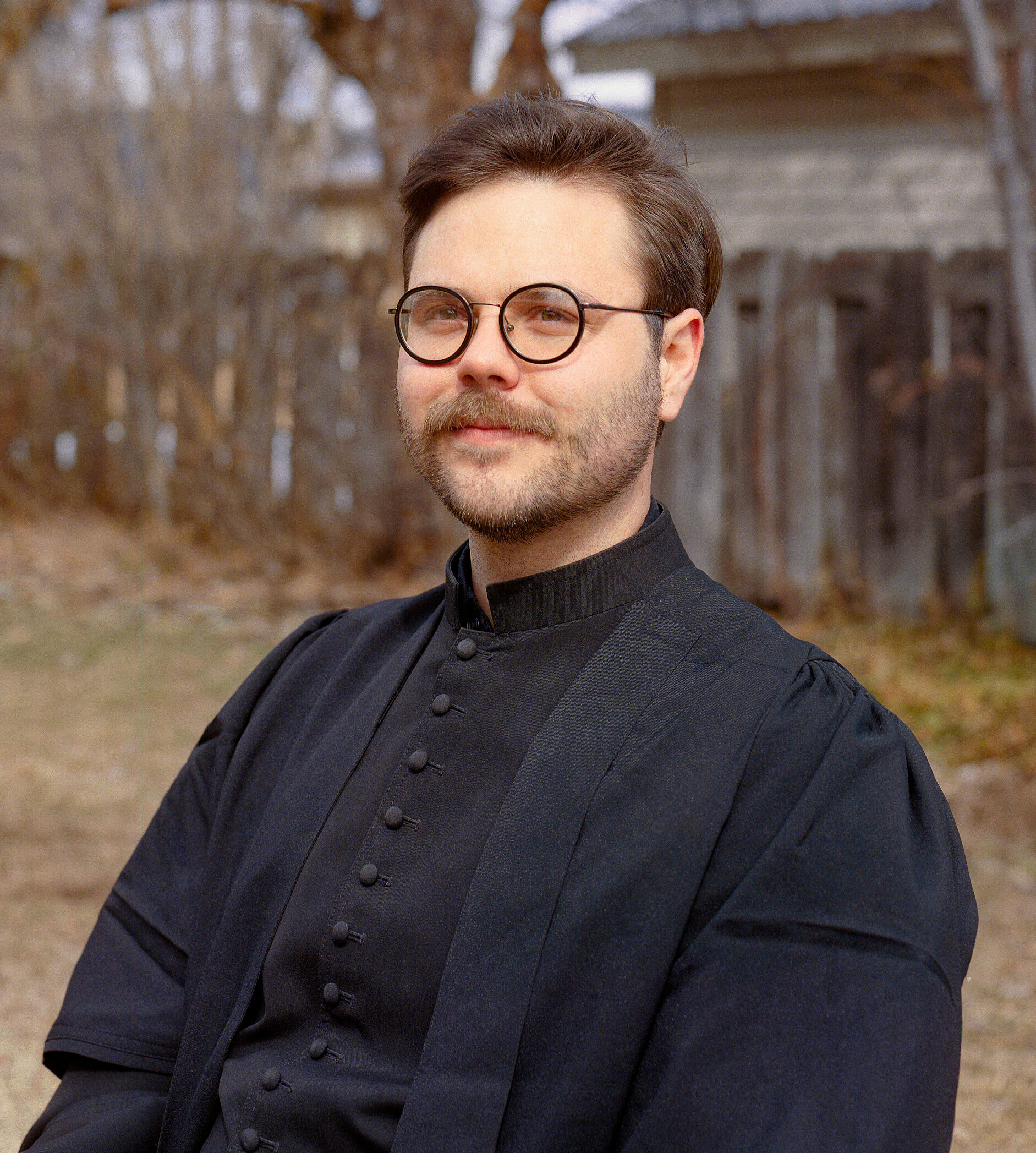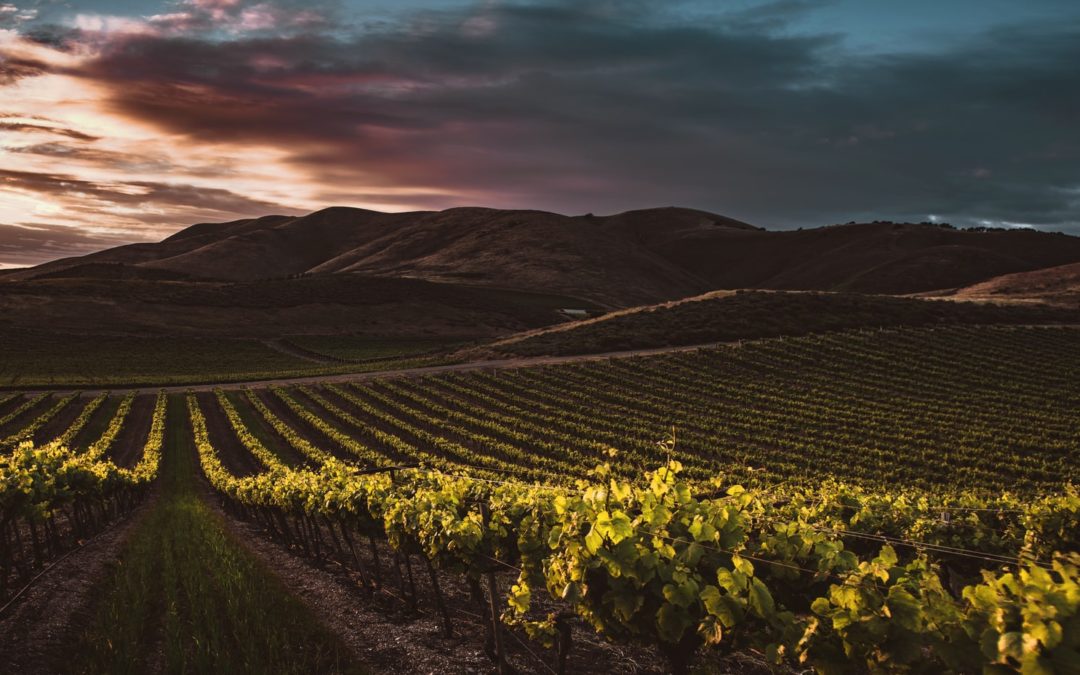Do not move the ancient landmark that your fathers have set.
Our Church has nearly finished celebrating the minor rogation days, that is, the three days that precede the Ascension of our Lord. These days have traditionally steered its celebrants to consider two primary concerns: maintaining the ancient boundary lines and heartfelt prayers for increase. It has remained a season of remembrance and growth; of passing along a communal memory and ushering in the new. For our brothers and sisters across the pond, this is an easier task than for those of us within the American Church. Just about every village within those isles can present some stone that a Saint once laid his head against, or a tree under which another spent her time in prayer. Seemingly every town may point to where their heroes were martyred or some unlucky Reformer burned. They in this time of rogation may point to the stump whereon St. Alban was beheaded, or walk the same greens as St. Aiden. In procession about the town, the student may say: “these are our Saints; our family. They died for me.” There is an oral transference of the people’s spiritual heritage. We Americans, however, are a more unfortunate lot. Not because we do not have a story or legacy left to us, but because we cannot be bothered to recall it. But what a legacy it is! Ours is the first Church to consecrate an African American to the priesthood: the Rev. Absalom Jones. Our Roman sister wouldn’t follow suit for nearly a hundred years, and the Eastern Church fifty or so years after that. The first Native American Priest – the Rev. Enmegahbowh – was consecrated by the American Church, and it was our own Bishop Seabury who was the first Bishop of any Church from this Continent. We have myriads of Seaburys, DeKovens, Muhlenbergs, and Hamiltons among our ranks; and their monuments have not yet begun to fade. Anyone may still pilgrimage to the Prayer Book Cross in Golden Gate Park or to the shrine of Bl. Grafton in Fond Du Lac. Many still make the ‘trek to Breck’ at Nashotah House to venerate our ‘Apostle of the Wilderness’. We still possess Bishop Seabury’s mitre and the blood of the martyred Jonathon Daniels still cries out from our soil! The particularities of any given people are not merely written in books, but on the wrinkled faces of those who lived them, and the hearts of the young who have received them as their inheritance. Be sure, then, that when we stand before Christ, our Judge and Spouse, that our Spiritual Parents: the Matriarchs and Patriarchs of our American Church, have left for us a dowry rivaling even that of our English counterpart.
So why then does American Anglicanism feel as if it lacks an ethos? Why does it feel so disconnected from any semblance of a living tradition? Because a seed must be planted and a tradition received. In the previous Tract, it was asserted that we should not “follow the example of Esau and trade our birthright for a measly bowl of lentils”, but the reality is that many of us already have. We, quite simply, do not want it. Granted, this neglect of our heritage may be more intuitive than not, but whether acknowledged or done in ignorance the result is still the same: a faltering Church with no identity. Do the people of Memphis recall St. Constance and her companions? It is doubtful. Why? Because we do not “beat the bounds”. How embarrassing that the Presbyterians have a greater veneration for George Whitfield than his own communion! He is only one example of many, and for the sake of dear Augustus Toplady I will not even mention the Wesleys. If the dissenters find themselves looking again and again to our Church, then shouldn’t her own children do so as well? It is an oddity at best and a devastation at worst. Is this how we thank our Lord for the abundance of fruit He has allotted to our branch of the Church? “Do you thus repay the Lord?” questioned our teacher Moses. (Deuteronomy 32:6) “Remember the days of old; consider the years of many generations; ask your father, and he will show you, your elders, and they will tell you.” (v. 7) Likewise, Job instructs: “For inquire, please, of bygone ages, and consider what the fathers have searched out.” Holy Scripture does not afford us the privilege of shirking the filial duty due to our spiritual forebears, especially when they laid the ground that we now stand upon. The Church is surely “built on the foundation of the apostles and prophets” with “Christ Jesus himself being the cornerstone” (Ephesians 2:20), but the Saints throughout all ages serve as the granite flooring, elaborate accents, and magnificent decor which distinguishes the cathedral from a mere domicile.
So what is to be done? Learn. The Faith “was once for all delivered to the saints”, and the Saints have delivered it to us. (Jude 1:3) The Life of the Church and the Dogma of the Church are inseparable; both exist for the other. The Saints labor for the promulgation of the Faith, and it is the Faith that has made the saints, Saints. If you find that you have outgrown the doctrines of the Church, then you have also outgrown Her Saints. You cannot cleave to one and not the other. We must remember that from St. Stephen to St. Alban, from St. Alban to Bishops Latimer and Ridley, our people have died for the Faith. What kind of love is shown to them if we forsake what they purchased for us with their own sweat and labor? With their own blood? Is this really any kind of thanks; to uproot the hedges they spent a lifetime planting? So study! Tolle lege! We must find Truth’s border and mark out its edges; for beyond it is a gaping pit. We are fortunate to be a part of a tradition that takes catechizing seriously, and more so to be a part of a Province that has remained true to this aspect of our tradition. We have a catechism, a prayer book, and we have retained the formularies -all founded upon the infallible Word of God. We have all we need if only we would receive them with willing hearts and bodies eager to do the deeds of the Gospel. Through these we may follow our holy Mothers and Fathers of the faith in procession, joyfully marking out where we are to tread.
A final word: Like anyone who has been a part of a procession may tell you, a good presentation requires humility and obedience. It is not right that everyone stands in the place of the verger, choir, or the priest. If all are torchbearers, who will carry the Gospel? If all are crucifers, who will do the work of a priest? “Now there are varieties of gifts, but the same Spirit,” says St. Paul. (1 Corinthians 12:4) We all have our own particular role and vocation. The laity ought to learn from the priest, and the priest ought to teach. Likewise, the bishop ought to protect the borders of his diocese, and go no further. There are boundaries that we all must look to. Parents, keep your homes secure in the Gospel; priests, diligently watch over the parish; and Bishops, do not go beyond the boundaries of your diocese but shore up what is yours to govern. A hand cannot be an ear, neither can one diocese be another. Not only is it contrary to the ruling of the Church, but it is contrary to good sense. Countless schisms have taken place by one bishop thinking it was his prerogative to operate within the bounds of another. And yet, we still allow for “non-geographic” diocese. This irregularity in polity is not limited to a single churchmanship or a single diocese: the Diocese of C4SO and the Missionary Diocese of All Saints are both guilty of the same crime. St. Paul once more reminds us that “God is a God of order”. (1 Corinthians 14:33) It must be said, of course, that it is understood that changing the status quo is not an easy task, nor is the current organization of our very young province considered by anyone the ideal: however, there is danger in allowing it to be perceived as ordinary. The longer it persists, the harder a coherent unity will be in the future. Let us be humble enough to reform and tend to the tasks given to us. If we remain faithful in our work, then we will see the increase that we long for. Only then will we have a harvest worth speaking of, because only then will it be God working, “so neither he who plants nor he who waters is anything, but only God who gives the growth.” (1 Corinthians 3:7)

Brandon LeTourneau
Mr. LeTourneau is a Seminarian from Sacramento, California, and a regular contributor to The North American Anglican. His primary interest is Church History and the Catholicity of the Reformation. He hopes to one day serve the ACNA in an ecumenical capacity. Pray for him, a sinner.
Read more of his work here.

